Data report: In this report, we provide a descriptive overview of the landscape of higher education in prison during the 2020-2021 academic year (July 1, 2020 - June 30, 2021), based on the responses of known higher education in prison program staff (N=406) to the 2022 Annual Survey of Higher Education in Prison Programs. To our knowledge, the data we present here is the best available information about the state of higher education in prison programming for the 2020-2021 academic year.
This brief report outlines the potential impacts of Pell restoration on the field of higher education in prison. Using original qualitative data from interviews with 12 higher education in prison programs and quantitative data from a national survey of college programs in prison, our analysis focuses on persistent funding challenges that the Pell grant alone cannot address. Specifically, we highlight three distinct and pressing challenges for the field of higher education in light of Pell restoration, and related to: 1.
This report offers information about the effects of the COVID-19 crisis on higher education in prison programs. The data used for this report come from two sources: 1) the 2020 Annual Survey of Higher Education in Prison Programs, and 2) the Understanding the Landscape of Higher Education in Prison Programs Survey. These findings are part of an ongoing time-series
data collection process that will continue through semi-annual surveys distributed to higher education in prison programs through the United States.
The Understanding the Landscape of Higher Education Prison Survey (Landscape Survey) was
designed as a confidential follow-up to the 2020 Annual Survey of Higher Education in Prison
Programs (2020 Annual Survey), distributed by the Alliance for Higher Education in Prison.
The Landscape Survey contained 93 questions designed to collect both descriptive and open-ended responses from participants about their college-in-prison programs during the 2018/2019
academic year
Student evaluation form: As a champion of institutional, structural, and personal transformation, the Institute opens doors and eliminates barriers to success for people who have been involved in the criminal legal system. We create access to higher education and pathways to satisfying careers. We advocate for the right to housing, employment, healthcare, and other human rights too often denied people with criminal convictions. This program serves adult men, with college credit offerings. Instruction is on-site, face-to-face and remote.
Program evaluation: Freedom Prep is a college transition program for court-involved youth age 16-24. The goal is to provide a supported, structured on-ramp to college for currently and formerly incarcerated and court-involved young people. In addition to the opportunity to earn up to six college credits through a free college classes, the students receive college counseling and advising through CUNY programs such as the Foster Care Initiative, the John Jay Institute for Justice and Opportunity, College Now, and CUNY Start.
Program evaluation: STEP-UP's mission is to provide academic, logistical, and limited financial support for students who have been formerly incarcerated and/or have suffered from alcohol or drug addiction. This program serves adult men and women, with college credit and non-credit offerings. Instruction is on-site, face-to-face.
Understanding the Landscape of Higher Education in Prison Survey 2018-2019
A CONFIDENTIAL FOLLOW-UP TO THE 2020 ANNUAL SURVEY OF HIGHER EDUCATION IN PRISON PROGRAMS



